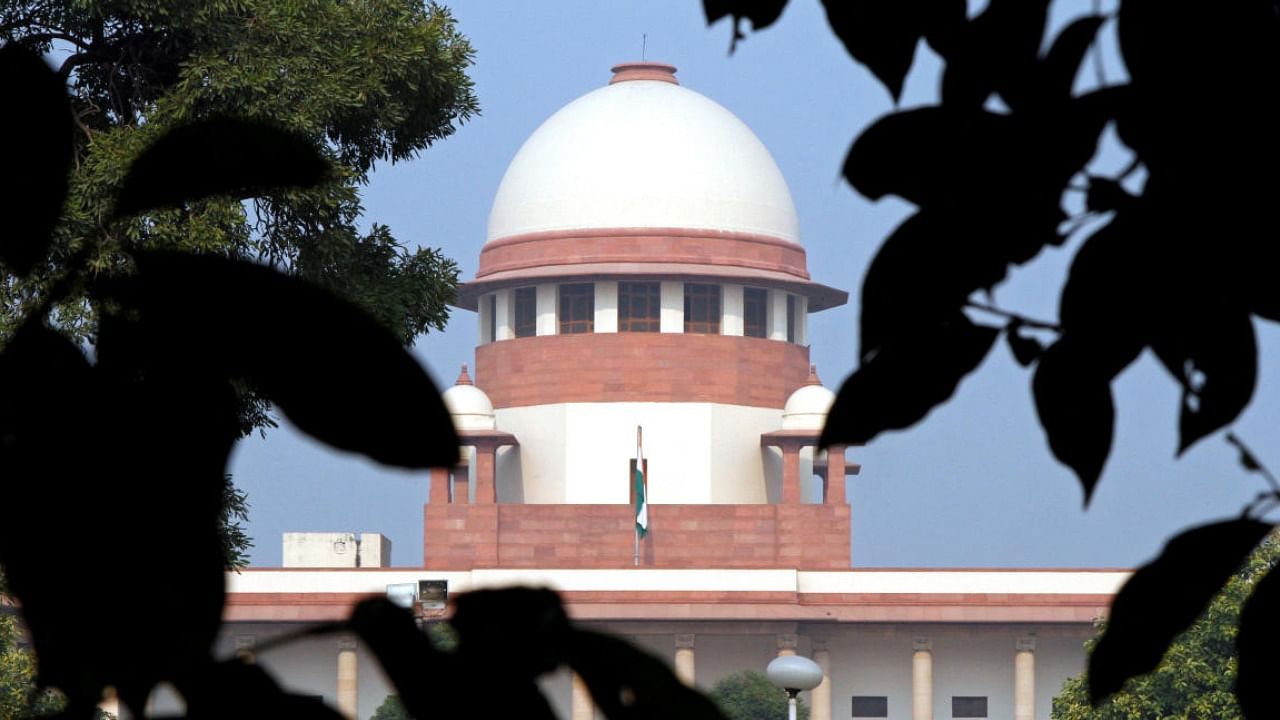
The Supreme Court of India.
Credit: PTI Photo
New Delhi: Attorney General for India R Venkataramani has told the Supreme Court that there can be no general right to know anything and everything without being subjected to reasonable restrictions and it cannot be suggested that “a citizen has a right to information under Article 19(1)(a) regarding funding of political party”.
He filed his response to a clutch of petitions challenging the validity of the Centre's electoral bonds scheme as a source of political funding.
Just ahead of the October 31 hearing before a five-judge bench led by Chief Justice of India D Y Chandrachud, the AG asked the court not to enter into the policy domain for regulating electoral bonds scheme.
“That contribution to political parties has democratic significance and a fit subject for political debate and demand of governance accountability free from influences does not mean that the court will proceed to declare on such matters in the absence of a clear constitutionally offending law,” the AG’s submissions read.
He said the SC's judgments in People’s Union for Civil Liberties vs Union of India (2003) and Union of India vs Association for Democratic Reforms (2002) were in the context of making informed choices about electoral candidates and knowing their antecedents.
Venkatramani said the information limited to such knowledge serves a specific end of citizens’ choice of electing candidates free from blemish and right to know for specific rightful expression was thus conceived, and from that it cannot be said that the right to know for general or broad ends necessarily follows.
“Therefore, these judgments cannot be read as to suggest that a citizen has a right to information under Article 19(1)(a) of the Constitution regarding funding of political party. If there is no right under Article 19(1)(a), the further question of locating reasonable restriction under Article 19(2) does not arise,” the AG’s submissions stated.
He emphasised that the Electoral Bond scheme, introduced in January, 2018 does not impinge upon any existing right of any person and cannot be said to be repugnant to any right under Part III of the Constitution, and “in the absence of such repugnance, the scheme will not be illegal”.
“A law which is not so repugnant cannot be voided for any other reason. Judicial review is not about scanning State policies for the purposes of suggesting better or different prescriptions,” he said.
The AG said the petitioners sought a declaration that citizens have a right to know as an aspect / facet of the right to freedom of expression and based on such declaration it is canvassed that the right to have access to the details of contribution to political parties must follow.
“Consequently, the confidentiality facilitated under the scheme is said to be impermissible…..Firstly, there can be no general right to know anything and everything without being subjected to reasonable restrictions. Secondly, the right to know as necessary for expression can be for specific ends or purposes and not otherwise,” the AG’s submissions stated.
AG said the scheme in question extends the benefit of confidentiality to the contributor and it ensures and promotes clean money being contributed. It ensures abiding by tax obligations.
“Thus, it does not fall foul of any existing right. A constitutional Court reviews State action only if it impinges upon existing rights and not because State action has not provided for a possible right or an expectation howsoever desirable,” he said.
The AG said the right to know the criminal antecedents of a candidate which can be of utility and relevance to the choice of a candidate is neither comparable to the case on hand nor can there be a general right to know anything and everything for undefined ends.
A constitution bench of the Supreme Court will begin hearing a batch of pleas challenging the electoral bonds scheme on October 31.
A bench five-judge bench headed by Chief Justice of India D Y Chandrachud and comprising justices Sanjiv Khanna, B R Gavai, J B Pardiwala, and Manoj Misra will consider a clutch of petitions challenging the validity of the Centre's electoral bonds scheme as a source of political funding.
On October 16, the Supreme Court had said that it will refer the challenge to the electoral bonds scheme to at least a five-judge bench of the apex court.
Petitions have been filed against the scheme by the Association for Democratic Reforms, Communist Party of India (Marxist), Dr Jaya Thakur (Congress leader), Spandan Biswal, and others.
